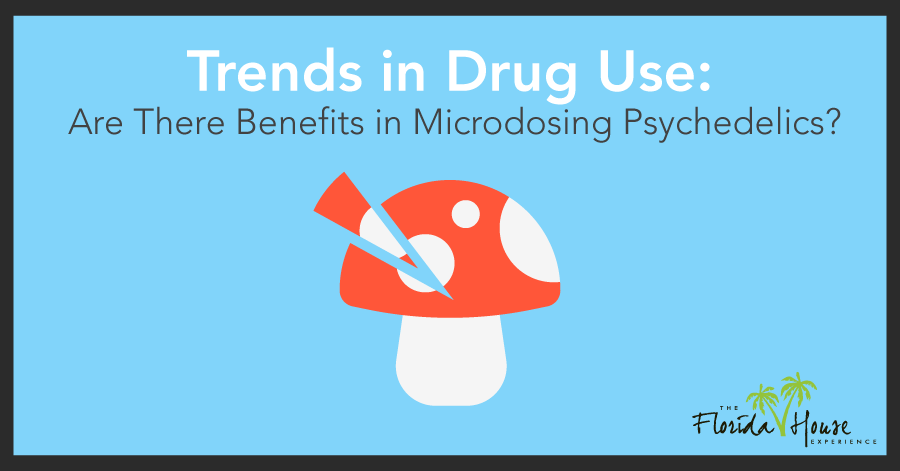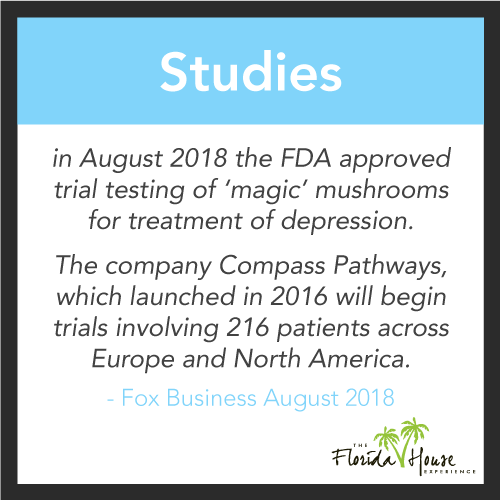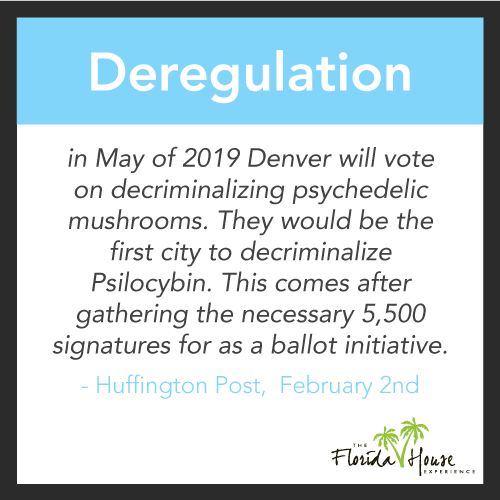
Psychedelic drugs derived from plants have been used for thousands of years by medicine men, shamans and spiritual leaders in ceremonies and rituals to create connections between humans and the spiritual world.
In 1938, the Swiss scientist Albert Hofmann synthesized LSD while attempting to develop a respiratory stimulant, and he accidentally discovered the hallucinogenic effects of the drug five years later. He went on to help his employer Sandoz Laboratories commercialize LSD for worldwide distribution from 1949 to 1965 when Sandoz stopped LSD production in response to multiple countries banning the drug.
During the period when prescription LSD was legal, it was widely used by researchers, doctors and psychotherapists to help facilitate intense psychotherapy sessions, including counseling patients who struggled with alcohol addiction, were facing a terminal illness or had mental health issues such as depression and anxiety.
Today, LSD, while still illicit, is gaining popularity among people who are trying to cure a wide variety of ailments, enhance their cognitive functioning, increase energy levels get off of prescription medications.
What Is Microdosing?
 Microdosing is the practice of using small, sub-therapeutic doses of drugs in an effort to achieve optimal benefits from the drugs while avoiding any undesirable side effects. Although any over-the-counter, prescription or street drug can be taken in a fractional dosage, the recent surge in interest around microdosing is mostly related to the use of illicit psychedelic drugs. LSD and psilocybin mushrooms, also known as magic mushrooms, are the two drugs that are most commonly taken in microdoses, although cannabis and ketamine are also often micro-dosed as well.
Microdosing is the practice of using small, sub-therapeutic doses of drugs in an effort to achieve optimal benefits from the drugs while avoiding any undesirable side effects. Although any over-the-counter, prescription or street drug can be taken in a fractional dosage, the recent surge in interest around microdosing is mostly related to the use of illicit psychedelic drugs. LSD and psilocybin mushrooms, also known as magic mushrooms, are the two drugs that are most commonly taken in microdoses, although cannabis and ketamine are also often micro-dosed as well.
The idea is that microdosing psychedelic drugs can give users all the purported benefits of a substance without actually causing a debilitating high or significant impairment. People who microdose try to pinpoint the exact dose of the drug they need to take to achieve their desired effects.
What Is Microdosing Used For?
Microdosing hallucinogenics is a practice that proponents claim can be used to treat, and even cure, a wide variety of diseases and conditions. One of the most popular advocates of microdosing LSD and psilocybin here in the United States has been Dr. James Fadiman, a licensed psychologist based in California who has been studying psychedelics for over 50 years.
According to Dr. Fadiman, psychedelics drugs taken in microdoses can be safely used to treat everything from asthma and allergies to depression, the common cold and menstrual problems. Currently, microdosing LSD is said to be relatively common in Silicon Valley, where proponents of the practice claim that they are able to use microdosing as a productivity hack — a way to help software engineers, coders, computer programmers and others in the high-paced, high-pressure tech industry perform at peak levels.
In fact, there’s a long history of LSD use as a tool to enhance human performance in California. Steve Jobs, the co-founder of Apple, reported used LSD frequently during college, and many credit Jobs’ drug use with giving him the vision needed to develop products like the iPhone. Jobs is quoted as saying, “Taking LSD was a profound experience — one of the most important things in my life. LSD shows you that there’s another side to the coin, and you can’t remember it when it wears off, but you know it.”
Few Studies to Back User Claims
 So far there’s been little in the way of verifiable scientific evidence to back claims that microdosing psychedelic drugs deliver the benefits that advocates of the practice promise. This lack of clinical research is largely due to the fact that substances such as LSD and magic mushrooms remain illegal in the United States and most countries where drug research is commonly conducted.
So far there’s been little in the way of verifiable scientific evidence to back claims that microdosing psychedelic drugs deliver the benefits that advocates of the practice promise. This lack of clinical research is largely due to the fact that substances such as LSD and magic mushrooms remain illegal in the United States and most countries where drug research is commonly conducted.
Right now, LSD is classified by the United States Drug Enforcement Administration (DEA) as a Schedule I drug, meaning it has a high potential for abuse, is most likely to cause severe psychological and/or physical dependency and has “no currently accepted medical use.” Other drugs in this category include heroin, ecstasy, MDMA, and peyote. Similarly, psilocybin, the active hallucinogenic ingredient in magic mushrooms, is also illegal in any amount. Most psychedelics do not possess a physical dependency like heroin, but it is possible to form an addictive relationship with.
In response to the growing interest in microdosing hallucinogenics and the use of psilocybin and LSD to treat mental health issues such as severe depression, lawmakers in both Colorado and Oregon have considered decriminalizing possession of psilocybin mushrooms.
In Denver, a citizen group called Decriminalize Denver has been successful in their campaign to have a proposal to stop the prosecution of people charged with possession of psychedelic mushrooms put on the upcoming municipal ballot. If passed, magic mushrooms would not be legalized per se, but it would “make them a low priority for law enforcement” similar to the successful 2004 city-wide vote to decriminalize marijuana possession.
Is Microdosing Dangerous? Some Experts Think So
The lack of research into the impacts of microdosing concerns many medical experts, including Dr. David Nichols, a world-renowned expert on psychedelic drugs and an adjunct professor at the University of North Carolina.
As a pharmacologist and medicinal chemist who has studied psychoactive drugs since 1969, Dr. Nichols states that “microdosing is … a bad idea.” He also states, “It is at least theoretically possible that low doses of LSD could enhance the biosynthesis of dopamine,” which would effectively mimic the effects of a low dose of pharmaceuticals, such as Ritalin, that are used to treat attention-deficit disorder.
In addition to the potential for abuse and current lack of dosage accuracy, LSD use may trigger a serious cardiac condition known as valvular heart disease — a condition that negatively impacts the function of the heart valves.
Are You Concerned About Your Psychedelic Drug Use?
If psychedelic drugs and microdosing are a problem for you, we’re here to help. FHE Health treats a wide variety of behavioral and mental health issues including process behaviors. Call us anytime you’d like to learn more about our life-saving treatments.






